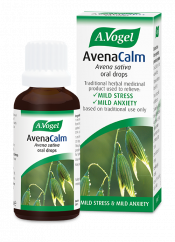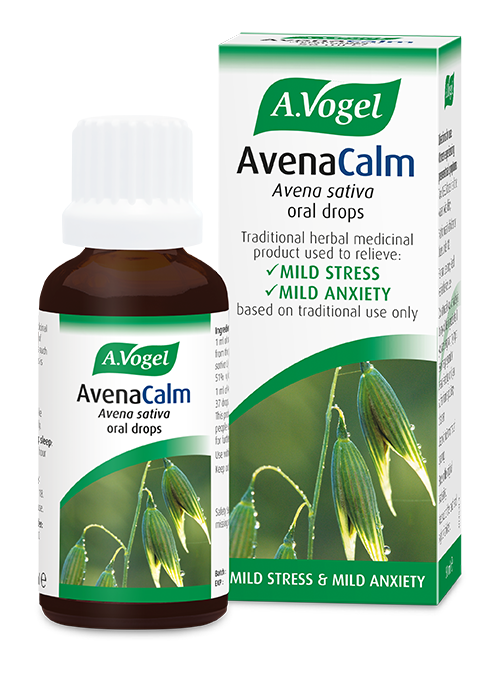Suffering from anxiety?
Answer our quick and easy 11 question test to see if you are suffering from anxiety.
Take the testAnxiety attacks can be extremely alarming and sometimes frightening, especially when they occur without warning. Often, we’re at a loss when it comes to coping with the symptoms – the rapid breathing, the light-headedness and the racing pulse. That’s why, today, I’m going to discuss a few simple tips and methods to help you deal with your anxiety attacks.
Breathing in slowly and deeply, in through your nose and out through your mouth is the first thing to do if you're having an anxiety attack. Closing your eyes, counting with your breath and relaying positive and present thoughts can also help you to overcome some of the physical and mental symptoms associated with anxiety.
There’s no denying the fact that anxiety attacks can be frightening to experience, especially for the first time. You might not understand what is happening to you and, often, sufferers start to link their symptoms to more serious illnesses. So, how do you know if you’re having an anxiety attack? Well, below are some of the most common symptoms:
As you can see, some of these symptoms can understandably be quite alarming, but luckily, anxiety attacks are not life-threatening and shouldn’t have a long-term impact on your health. However, if you are concerned that any of the symptoms you’re experiencing could be linked to something else, then you should always speak to your doctor, just to be on the safe side.
Try the following techniques if you're feeling anxious or stressed:

Rapid breathing is one of the most common symptoms of an anxiety attack and it can be the scariest as, if you feel you’re struggling to breathe, you’re only going to become more stressed. One of the best ways of countering this, though, is to employ deep breathing techniques.
Try to focus on your breathing. Inhale through your nose, counting slowly to 3 and then exhale through your mouth for a count between 5 and 8. Breathing out for longer can actually help to soothe your central nervous system as it activates your calming parasympathetic branch. If you feel as though you can’t slow your breathing down and feel you could be on the verge of hyperventilating, you can breathe into a paper bag.

It’s not unheard of to experience some degree of muscle tension if you’re suffering from an anxiety attack, which can be very uncomfortable and sometimes painful.
If you’ve already mastered the breathing techniques I mentioned earlier, you could try focusing your attention on your muscles, as interestingly, relaxing physically can also be a tactic to help us relax mentally too.
Start by turning your head from side to side to loosen your neck or roll your shoulders back and down.
You could then move on to stretching your other muscles, either by going for a walk or raising your arms above your head. Hopefully, once these muscles are nice and loose, it should help to relax your mind as well as your body.

Mindfulness is the practice of being more aware and present in the moment. You can employ both mindful eating, or just more general mindfulness. If you’re struggling to cope with the symptoms of an anxiety attack, employing some of the basic techniques of mindfulness could help you to centre yourself and enhance your ability to focus.
Rather than scrambling to keep up with an onslaught of panicked thoughts, instead mindfulness encourages you to slow down and hone in on how you’re feeling in that moment – embrace your feelings, understand them and rationalise them.
Studies have even found that mindful-based therapy has proved just as successful as CBT (Cognitive Behavioural Therapy) when it comes to overcoming anxiety symptoms. (1) If you want to try mindful meditation for yourself, the good news is that it’s never been easier. All you need to do is download an app like Headspace to your phone, for free, and you can try a few 5 or 10 minute guides that are easy to understand and digest.

Counting backwards is one useful technique that could be employed if you’re in the midst of an anxiety attack – you could try counting backwards from ten or, some people find it helpful to count the numbers out of order. This could be counting to twenty but only counting the odd numbers – it redirects your concentration to something else and, as a result, takes your attention away from your symptoms.
The other technique is the 5,4,3,2,1 technique where you couple the counting with things you can see, hear, feel, smell and taste.

If you're experiencing an anxiety attack, some people find it useful to repeat a mantra over and over again. This can help to clear your mind and focuses your attention on something positive. You could try something along the lines of 'I am calm' or 'this too shall pass' when you are in the midst of an anxiety attack to help focus and centre yourself.

This isn’t meant to be condescending, rather BRAVE is an acronym that stands for Body knowledge, Realistic thinking, Acceptance, Validation and End. Let’s breakdown each stage, starting with Body knowledge.
Body knowledge is being aware of your body and the physical impact of your symptoms. Learn as much as you can about anxiety attacks and recognise that, despite your symptoms, you aren’t in any immediate danger. This brings us neatly on to the next stage of this technique – Realistic thinking.
Realistic thinking simply means repeating to yourself that you are not in any danger – yes, your symptoms are uncomfortable and distressing, but they are not life-threatening. Stage 3 & 4, Acceptance and Validation, are all about accepting what is happening to you and validating your experience. Just because you are having an anxiety attack does not mean that you are weak.
Finally, the End phase means that you should acknowledge that your symptoms will come to an end – an anxiety attack won’t last forever and it will eventually pass.
If you’re experiencing an anxiety attack, some people find it useful to repeat a mantra over and over again. This can help to clear your mind and focuses your attention on something positive. You could try something along the lines of ‘I am calm’ or ‘this too shall pass’ when you are in the midst of an anxiety attack to help focus and centre yourself.
There is no definitive way of preventing an anxiety attack but, as the name may suggest, tackling the source of your anxiety can play a huge role in diminishing the symptoms. As I’ve mentioned, anxiety attacks tend to be accumulative in nature so, if you're able to stop your anxiety from building up, you may help to reduce your chances of experiencing an attack.
Here are a few steps that might help:

A gentle preparation derived from the oat flower herb, just mix 25 drops with a little water to help soothe your nervous system.
"This product has changed my life! I have suffered from severe anxiety for all of my life."

The terms ‘anxiety attack’ and ‘panic attack’ are often used interchangeably but they do refer to two separate issues, although they share many of the same symptoms. However, a panic attack is generally considered to be more intense than an anxiety attack and often appears to occur for no given reason.
Anxiety attacks, on the other hand, are usually associated with a trigger and the symptoms, while not as intense, can last for longer. They tend to be accumulative – a build-up of anxiety, over a period of time, for example, may result in an anxiety attack. While the immediate symptoms of this attack might fade, some symptoms can linger.
First published on 13/06/19, updated on 20/08/21
 Looking for help easing symptoms of mild stress and anxiety?
Looking for help easing symptoms of mild stress and anxiety?
Buy now from your local store.
“We always have this item in the house it is very good to have it about for the odd stress related happening.” Garry, Penrith![]()
To find local independent stores in your area that sell AvenaCalm - Avena sativa tincture, simply type your postcode below.

Answer our quick and easy 11 question test to see if you are suffering from anxiety.
Take the testAs the A. Vogel Mood advisor, I recommend Stress Relief Daytime Drops to help relieve symptoms of stress and anxiety.
Learn moreWhen we feel stressed or anxious our body responds as though we are under attack, releasing a surge of adrenaline which can cause a number of baffling bodily behaviours including palpitations, shortness of breath and even a dry mouth!
The physical symptoms our emotions causeDiscover the story of Alfred VogelNature is just about the best thing we’ve got!